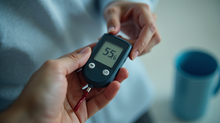Gestational Diabetes
- Maureen Sullivan
- Apr 23, 2021
- 2 min read
Gestational diabetes is diabetes diagnosed for the first time during a pregnancy. Uncontrolled prenatal high blood sugars affect both the mother and baby’s health. Nearly 10% of women who are pregnant in the U.S. each year are diagnosed with gestational diabetes. Fortunately, early diagnosis and ongoing treatment can minimize complications and result in healthy outcomes.
Know your personal risk factors if you are planning on becoming pregnant. Take steps to lower those modifiable risk factors and achieve a good pre-pregnancy health status. These risk factors may include the following:
blood sugar levels that are higher than they should be but not high enough to be diabetes (prediabetes)
a family member with diabetes
personal history of gestational diabetes
History of polycystic ovarian syndrome (PCOS) or another health condition linked to problems with insulin
Previous birth to a large baby (weighing more than 9 pounds)
Age > 25
Gestational diabetes usually occurs in the second half of pregnancy. Your doctor will routinely check for it between weeks 24 and 28, or sooner if you're at high risk. The test is called a glucose tolerance test and involves drinking 50 grams of glucose, and having a blood test drawn an hour later. This test measures how well you process the glucose. Abnormally high/elevated results would warrant a 3-hour glucose follow-up test.
Treatment for gestational diabetes includes frequent monitoring of glucose levels, eating a healthy, low sugar diet, physical activity/exercise most days of the week, and routine prenatal care. Medication (insulin) may be necessary to control blood glucose levels. Uncontrolled maternal glucose levels may result in the delivery of an infant with macrosomia. Fetal macrosomia refers to a newborn who's much larger than average, weighing more than 8 pounds, 13 ounces. This infant size is associated with emergency cesarean sections and infant complications, including increased mortality, brachial plexus (pain, weakness or numbness of the arm and hand), hypoglycemia and facial nerve injuries.
Gestational diabetes usually resolves 6-12 weeks post-partum. Follow-up testing should be done every 1-3 years post-delivery, as half of all women who had gestational diabetes develop type 2 diabetes later. To proactively lower your risk of gestational diabetes, begin now by eating a healthy diet, maintain an ideal body weight (lose weight if need be), and establish a routine exercise plan. Finally, discuss with your doctor ways to achieve optimal good health before you get pregnant. Preplanning will ensure healthy pregnancies and safe deliveries.
References:




































Comments